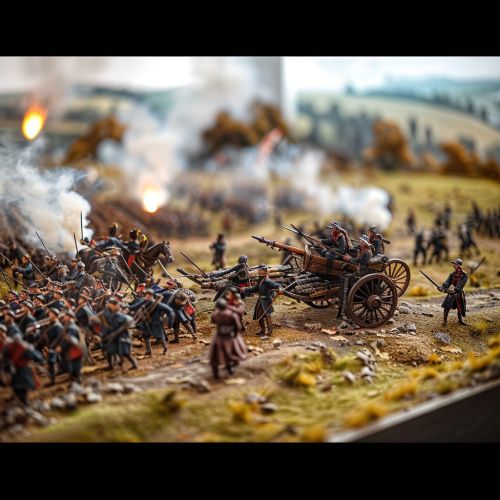Eighty Years' War
Background
The Eighty Years' War, also known as the Dutch War of Independence (1568–1648), was a revolt of the Seventeen Provinces of what are today the Netherlands, Belgium, and Luxembourg against Philip II of Spain, the sovereign of the Habsburg Netherlands. The war was fought primarily in the Low Countries, with episodes of large-scale combat also occurring in northern France and southwestern Germany.
Causes
The causes of the war were diverse. The Dutch provinces, though fighting against the rule of their king, did not initially seek independence. Many factors contributed to the war, including the imposition of a new form of government, the resistance to the Spanish Inquisition, and the economic and political ambitions of the Dutch nobility. One of the main causes was the increasing tension between the inhabitants of the Netherlands and their Spanish rulers.
The Revolt (1568–1609)
The war began with small, disorganized skirmishes that evolved into a full-scale rebellion in the provinces of Holland and Zeeland in 1572. The Union of Utrecht in 1579 united the northern provinces of the Netherlands, while the Union of Arras united the southern provinces. The provinces in the Union of Utrecht would later become the United Provinces.
The Twelve Years' Truce (1609–1621)
The Twelve Years' Truce was a period of relative peace during the Eighty Years' War. It was a time of economic growth for the Dutch Republic, and the Spanish were able to rebuild their military.
The War Resumes (1621–1648)
The war resumed in 1621. The Dutch Republic enjoyed military successes and established its independence from Spain. The war ended with the Treaty of Münster in 1648, which recognized the independence of the Dutch Republic.
Impact
The Eighty Years' War had a profound impact on the history of the Netherlands and Europe. It led to the recognition of the Dutch Republic as an independent country and marked the beginning of the Dutch Golden Age.
See Also


